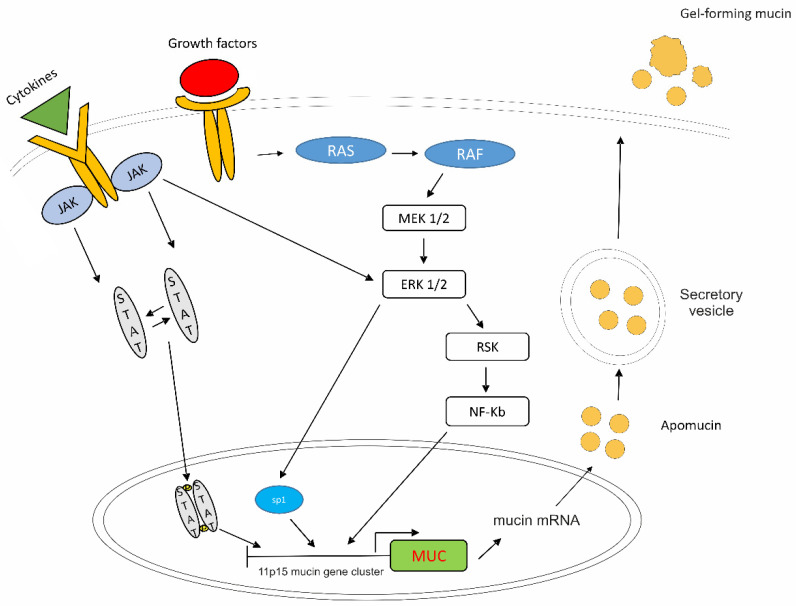Figure 2.
Main pathways involved in mucin expression in PMP. In the context of chronic inflammation, several factors, including pleiotropic cytokines, growth factors, hormones and LPS, may induce a phosphorylation cascade involving the Ras/Raf/MEK/ERK/RSK and JAK/STAT pathways, and their crosstalk, leading to SP1-, NF-Kb- and STAT-mediated activation of mucin promoters. The 11p15 mucin gene cluster contains four mucin genes, among which MUC2, MUC5AC and MUC5B, i.e., the genes mainly involved in mucin formation in PMP. Mucin mRNAs generate the core protein structures (apomucin) that are glycosylated, assembled and secreted through secretory vesicles. The three main mucins secreted by PMP are gel-forming mucins.

